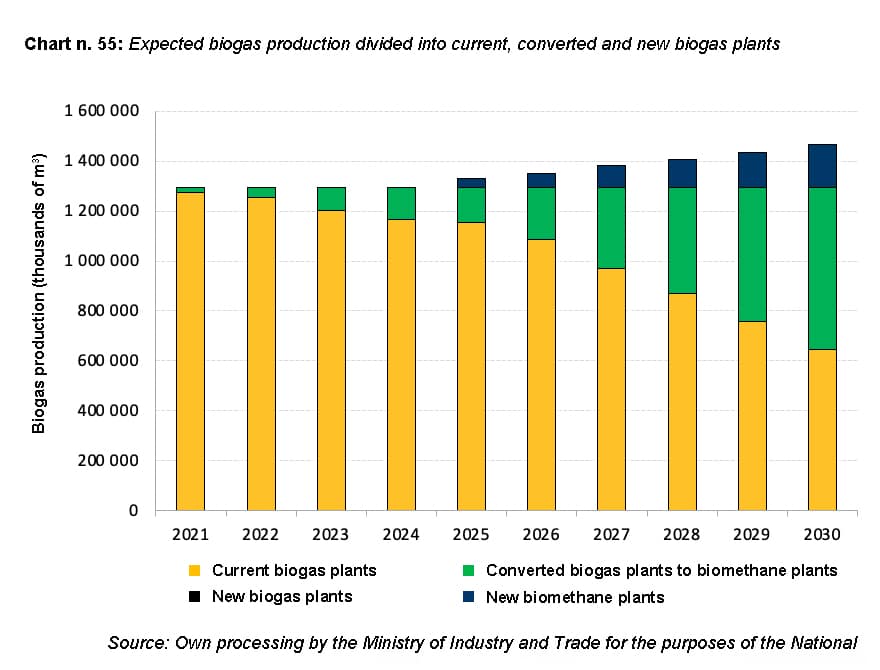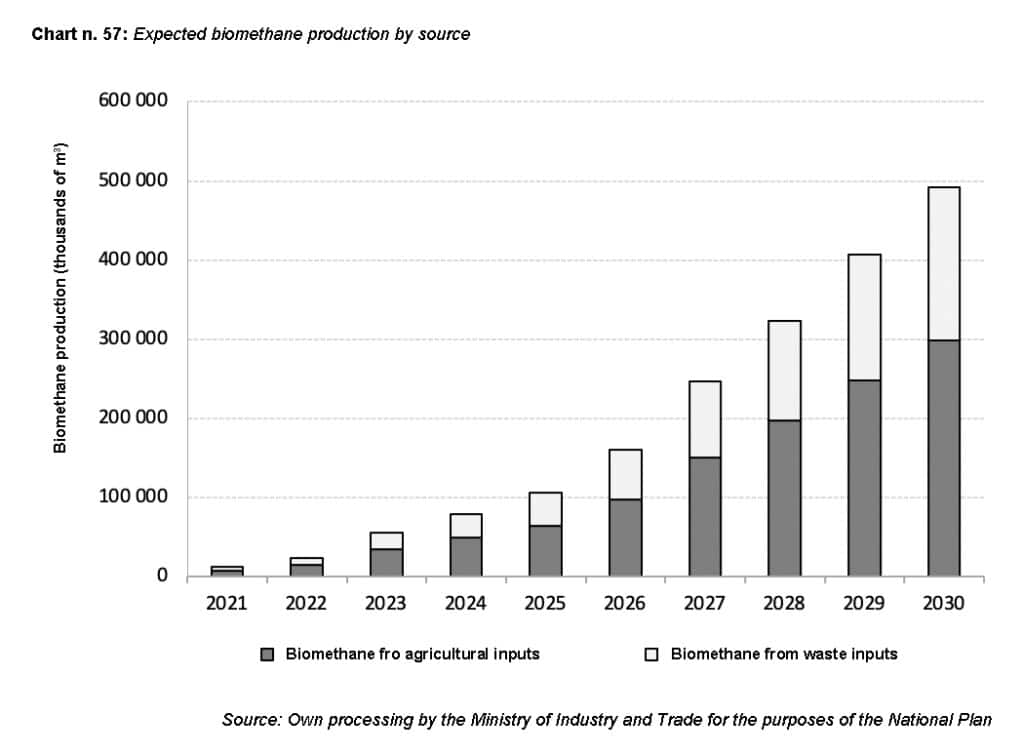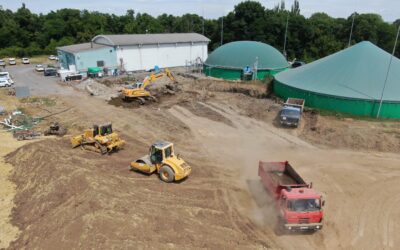The Czech National Energy and Climate Plan is soon to come into effect to support the EU’s climate and energy targets for reducing emissions, increasing energy efficiency and the share of renewables. The role of biogas and biomethane, which the Czech government expects to play a significant part in the decarbonisation process by 2030, is also substantially addressed. Compared to natural gas, they are also intended to ensure secure, local energy supplies. What steps are being taken to achieve this?
The Czech National Plan, which is soon to be in effect, is significantly linked to the update of the Czech Climate Protection Policy and the draft of the State Energy Concept of the Czech Republic (“SEC”), which were prepared and approved consistently with this document. Of this triad, however, it is the National Plan (“NP”) that contains probably the most specific references to biogas and biomethane production and use, whereas the other two government proposals mention them only marginally.
Natural gas in combination with gases from renewable sources, i.e. biomethane and hydrogen, should, according to the “NP”, make it possible to compensate for the decline in supplies from coal power in the period until 2030-2050, as well as to partially move away from liquid fuels in transport. The greatest potential for production is offered by biogas plants in the Czech Republic, with more than five hundred of them. The vast majority of them now produce heat and electricity using cogeneration units, but the Plan expects that many of them will also start producing biomethane. This can be created by treating biogas and then supplying it directly to the gas grid. At present, however, only a few stations are producing it. The market leader is the Energy financial group, which also started with biomethane in the Czech Republic. It was the first to build a biomethane station in Rapotín, and today it also operates one in Vyškov.
Biogas plants mean more to the modern energy industry than just the possibility of producing biomethane. They can be modified to provide power balance services, install Power to Gas systems or capture CO2.
Not only gas, also heating and transport
On the basis of the national strategy documents, a higher degree of diversification of heat sources is also expected in the future due to the gradual replacement of coal by so-called alternative fuels. Namely, an increase in the share of waste, biomass (especially residual) and natural gas.
Table n. 65: Final consuption of biogas (TJ)
| Final consumption of biogas | 2016 | 2020 | 2025 | 2030 |
| Electricity | 9320,5 | 9469,5 | 8970 | 5683 |
| Transport | 0 | 0 | 1416,1 | 6554 |
| Heating and cooling | 7489 | 7595 | 8926,5 | 13582,8 |
| Total | 16809,5 | 17064,5 | 19312,6 | 26819,8 |
By 2030, the development of renewable energy sources in existing supply systems will be crucial, but there is also potential for the creation of new (mainly smaller) systems, including biogas plants. The solution may lie in converting existing biogas plants to biomethane plants and using this commodity for combined heat and power (“CHP”).
The potential for the development of high-efficiency “CHP” was identified in the Plan, particularly for smaller sources with electrical outputs on the level of a few MWe. It is likely to consist in increasing the number of micro CHP units (capacity below 50 kWe), small (capacity below 1 MWe) and medium-sized natural gas-based CHP sources.
In the transport sector, fuel suppliers will have to comply with a mandatory sectoral target of 5.5% of final consumption of biofuels, including biomethane (BioCNG), following the new 2023 Directive. Meanwhile, the development of the fleet of gas-powered cars has been growing at around 30% year-on-year for a long time, despite declines caused by the shortage of vehicles on the Czech market. The number of CNG buses is also increasing annually thanks to subsidies for their purchase and there are currently about 1,300 of them in operation, representing more than 6% of the Czech fleet. Infrastructure is developing: there are currently around 200 public refuelling stations in the Czech Republic. However, according to “NP”, one of the significant barriers affecting the development of CNG cars remains, for example, the ban of parking in underground garages.
Question of public support and distributor
A key issue for the development of renewable gases is the existence of public support, which should cover both the transformation of existing biogas plants to biomethane production and the construction of new biomethane plants. It should help with the costs for the production, transport, distribution and storage of biomethane (or hydrogen).
Conversion is expected to be particularly important for biogas plants with lower utilization of useful heat and close to high-pressure gas pipelines, which should have a positive impact on increasing the use of primary energy sources. By adjusting legislation and standards, it will then be possible to implement bi-directional pressure reduction stations and thus use them to connect low-pressure distribution networks, according to “NP”. This should, among other things, lead to a reduction in both operating and investment costs and increase the connectivity of production plants.


The operational support for biogas and biomethane has been widely discussed, especially for sources whose energy production cost is higher than the market price and investment support alone will not secure their further development. According to the “NP”, the maximum possible energy efficiency of the primary fuel, i.e. the production of biomethane and the production of energy in high-efficiency combined heat and power plants in the amount of at least 50% of the heat produced, should be supported for biomass and biogas.
As far as investment support is concerned, the construction of biogas plants utilizing organic waste is supported by the Environmental Operational Programme, while the Operational Programme Entrepreneurship and Innovation for Competitiveness can support the extraction of heat from existing biogas plants for its efficient use. Several new biogas plants are expected to be built by 2030, but their total biogas (biomethane) production will be relatively low compared to other categories.
According to the National Plan, gas distribution network operators will also play a crucial role in meeting the biomethane targets. They will need to adapt to changes in gas flows and quality caused by the integration of biomethane plants into local networks. It is therefore necessary to ensure high reliability and operational safety in accordance with European standards. The support for green gas by the DSOs is to consist in particular in the purchase of production pipelines and, where appropriate, associated process equipment.

